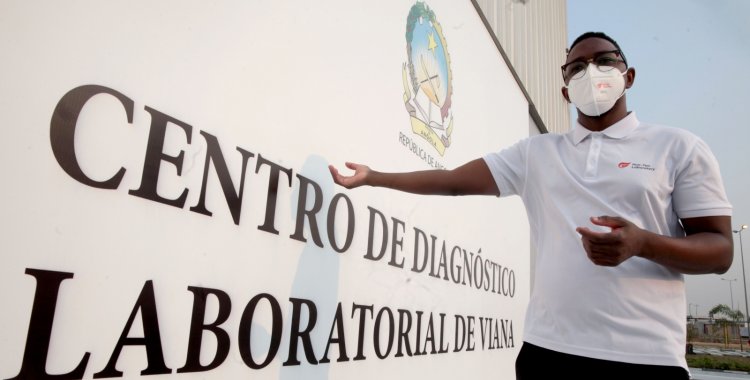Back in Angola, he now coordinates the covid-19 diagnostic laboratories that are being set up in the country.
After finishing high school in 2013, named in the honor roll of his school, he arrived in China in 2014, where after a year of intensive Chinese studies, he entered the Normal University of Zhejiang in eastern China, in Guangdong province, near Macau and Hong Kong.
Adapting to China in the beginning was not easy: "It is a completely different culture. I was 17 years old and it was the first time I left my comfort zone. I left my family, my friends, the whole world, in Angola to go to an unknown country," he told Lusa.
Besides the culture, the climate and the education system were also strange to Valdemar, who was also learning new languages.
So, despite having other Angolan colleagues at the university where he learned Chinese, the young man decided to do a total immersion in the new country.
"I spoke to myself: either I had the opportunity to continue speaking Portuguese or to deal with people who didn't speak my language to make me speak in English and Chinese. I preferred to isolate myself from the Lusophone population - Angolans, Cape Verdeans, Mozambicans - and join people who spoke English in order to learn. It was a process that I thought would be good for me and I ended up learning Chinese and English at the same time. Since it's in the rain, it's better to really get wet," he told Lusa.
The barriers he had to overcome made him the person he is today, he said.
"Today, I feel good living in China," said the scientist, whose plans for the future do not include returning to Angola so soon, since he intends to continue his studies in the Asian country.
At the age of 23, the Angolan specialist recently returned to his country to train the technicians who will process the samples at the recently opened Center for Laboratory Diagnosis in Viana.
As he travels through the different rooms, he shows the usefulness of the Mandarin intensive course, addressing with ease the Chinese colleagues, who return answers in a smiling tone.
The laboratories are prepared to process up to 6000 tests per day (3000 serological and 3000 based on molecular biology RT PCR) and have in all rooms biosafety offices prepared to neutralize the dangerousness of the samples collected.
The samples enter the extraction room and then move to an amplification room where the RNA is read.
In the extraction room each machine is equivalent to the work of ten people and is prepared to analyze 188 samples per hour, explains Valdemar Tchipenhe.
The Huoyan ('Eye of Fire') project of the Chinese company BGI aims to build molecular biology laboratories around the world, used for covid-19 detection.
The project is already implemented in Togo and Gabon, Angola being the third African country to host the laboratories, where the Angolan scientist and his team, which has nine members.
"Our function is to create the laboratories, install the devices and equipment and make the calibration of them and give training to the technicians who will be working here," said the young man, pointing out that detection "is the best weapon to fight this invisible enemy that is covid-19," while the vaccine is not enough.
"Only by testing can we avoid contamination and help to contain the virus," he stressed, considering that Chinese laboratories are an asset for the government and the population, because they will increase the testing capacity 10 times.
Valdemar Tchipenhe also defends that Beijing has also made an important contribution in the fight against the virus: "China has helped some countries, especially African countries, not only in terms of laboratories for detection, but also by offering biosecurity equipment and training new technicians who will be able to act in the future to detect other pathologies".
The center, which cost the Angolan government seven million dollars (six million euros), is located in the Special Economic Zone in Viana, on the outskirts of Luanda, and was inaugurated on 10 September.
Besides Luanda, molecular biology and serology laboratories will be installed in the provinces of Huambo, Lunda Norte and Uíje.
Angola is the Portuguese-speaking African country with the most deaths due to covid-19, recording 6366 cases and 218 deaths.







